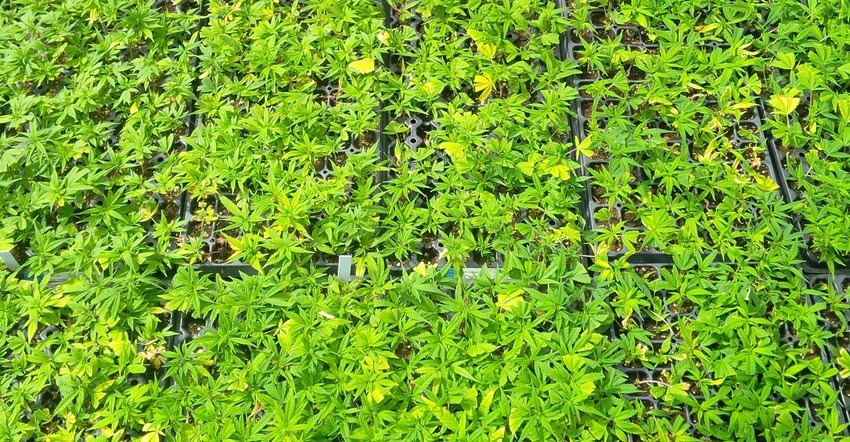
With Pennsylvania’s hemp program now taking applications for the 2020 growing season, let’s take a look at hemp regulations throughout the Mid-Atlantic and Northeast.
First, the application window for Pennsylvania’s 2020 hemp program opened Jan. 4 and runs through April 1. One key difference this year is that both growers and processors will have to apply for a permit. Each individual property will require its own permit and application, and each permit costs $150.
Just over 4,000 acres of hemp were grown in Pennsylvania in 2019 by 324 growers.
As a result of the 2019 commercial growing season, the ag department has a list of prohibited varieties that yield THC levels above the legal threshold of 0.3%. Go online for more information.
In New Jersey, the state’s hemp production plan was one of three in the country — along with Ohio and Louisiana — to be approved by the USDA in December.
USDA has established the U.S. Domestic Hemp Production Program that outlines provisions for the department to approve hemp production plans submitted by states and Native American tribes, and also establishes a federal plan for producers in states that do not have their own USDA-approved plan.
New Jersey hemp legislation was signed into law by Gov. Phil Murphy on Aug. 9. Rules and regulations are posted online.
The annual permit fee for growers will be $300, plus a $15-per-acre fee.
Handlers will pay a $450 annual fee while processors will pay an annual fee for each type of hemp component they process. Growers are permitted to process and handle their own hemp without paying additional fees. However, once a grower processes or handles hemp from at least one separate hemp producer, the grower must pay applicable processor and handler fees
Hemp status in other states
Delaware and Connecticut each have hemp production plans that are under review by USDA. Both states are currently running their own hemp pilot programs.
West Virginia is drafting a hemp production plan for USDA review while Maine is in the process of drafting hemp regulations that will outline permitting and fees, and procedures for monitoring the growth of hemp. More information on Maine’s program is available online.
New York state is still operating under its Industrial Hemp Agricultural Research Pilot Program. In 2015, the program allowed a limited number of educational institutions to grow and research industrial hemp. In 2017, the cap on approved hemp-growing sites was eliminated and the program was expanded to include farmers and businesses.
More information on New York’s program can be found online.
Vermont’s Agency of Agriculture, Food and Markets is not accepting Vermont Hemp Program registrations for 2020 at this time.
Grower and processor registrations for 2019 have been extended to 2020.
Learn more about Vermont’s program online.
USDA has indicated that Maryland will follow the federal plan for hemp production. The state has an industrial hemp pilot program. Learn more about Maryland’s program online.
About the Author(s)
You May Also Like






